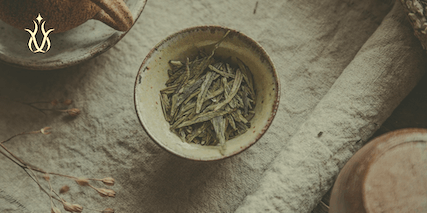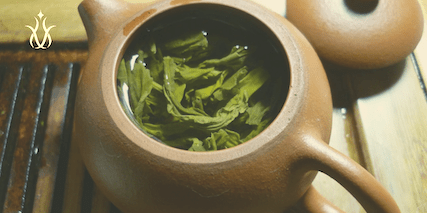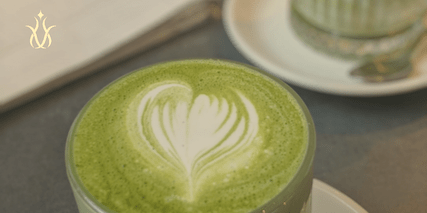Green tea isn’t just a refreshing drink—it’s also packed with powerful health benefits. This article explores the numerous surprising advantages of regular green tea consumption. Rich in antioxidants called catechins, green tea helps fight oxidative stress and reduce inflammation. Clinical studies have shown that it can enhance brain function, aid in weight management, and even lower the risk of heart disease. Furthermore, green tea is linked to a reduced risk of several cancers.
Dive into our guide to learn how you can incorporate green tea into your daily routine for its metabolic, cognitive, and overall health benefits, along with tips on the best ways to brew and enjoy this health-boosting beverage.
Introduction
The magic of green tea starts with a simple leaf. This beverage, cherished globally for its refreshing taste and wholesome properties, hails from a humble plant: Camellia sinensis. From this single plant, an entire world of tea is derived – black, oolong, white, and, of course, green. But what makes green tea so special? Let’s journey through its fascinating history and unwrap the intriguing secrets of its potential health benefits.
Green tea is a type of tea made from the leaves of the Camellia sinensis plant that haven’t gone through the same withering and oxidation process used to make black tea and oolong tea. Its origins can be traced back to China, with records of its consumption dating as far back as 5,000 years. From these ancient roots, green tea spread throughout Asia, eventually reaching far-flung corners of the globe.
While it originated in China, today’s green tea is also widely produced in other Asian countries, notably Japan, Korea, and Vietnam. Different regions boast their unique tea cultivation practices and tea varieties.
The Different Types of Green Tea
As we navigate the sea of green tea, we find an intriguing array of types, each boasting unique flavours, textures, and benefits. Let’s take a taste tour of some of the most notable varieties: Matcha, Sencha, Gyokuro, Bancha, and Genmaicha.
Matcha
The world of Matcha is one of vivid green hues, creamy textures, and an antioxidant powerhouse. What distinguishes Matcha from other green teas is the process of its making. The tea leaves are shade-grown for a few weeks before harvest, which boosts chlorophyll production and gives Matcha its bright green colour. After harvesting, the leaves are steamed, dried, and ground into a fine powder.
This unique process means that, with Matcha, you’re consuming the whole leaf, not just the brewed water. As a result, Matcha often has a higher concentration of antioxidants than other green teas, potentially offering enhanced health benefits.
Sencha
Sencha hailed as the jewel of green teas in Japan, offers a distinct taste and texture that’s loved by many. It’s renowned for its balanced flavours – a delightful mix of sweetness, bitterness, and a hint of umami. What makes Sencha stand out is its unique processing. The tea leaves are steamed shortly after picking, then rolled, shaped, and dried, resulting in a refined flavour and aromatic scent.
Sencha’s popularity in Japan isn’t just about its enjoyable taste. It’s also treasured for its potential health benefits. Like other green teas, sencha is rich in antioxidants, specifically catechins, which have been studied for their potential role in heart health and weight management.
Other Varieties (Gyokuro, Bancha, Genmaicha)
While Matcha and sencha might dominate the green tea stage, other varieties like Gyokuro, Bancha, and Genmaicha also have their unique charm and benefits.
Gyokuro, like Matcha, is shade-grown before harvesting, resulting in a tea with a rich, umami flavour and higher caffeine content. Bancha, often considered a lower grade of sencha due to its use of later-harvest leaves, is nonetheless a beloved everyday tea in Japan, offering a milder flavour and lower caffeine level. Genmaicha, a blend of Sencha or Bancha and roasted brown rice has a unique, toasty flavour that’s both comforting and delightful.
Each type of green tea offers its unique characteristics and health-promoting properties, offering tea lovers a variety of choices to suit their tastes and health goals. As we continue our exploration, we’ll delve deeper into the art of brewing these green teas to perfection and the nutritious elements they bring to the table. So, let’s steep onwards!

The Nutritional Power of Green Tea
The allure of green tea extends far beyond its soothing taste and aroma. It’s also a veritable treasure chest of potent nutrients, contributing to its health-enhancing reputation. Let’s plunge into this nutritional bounty, focusing on two standout components: antioxidants, particularly catechins, and the unique amino acid, L-theanine.
Antioxidants in Green Tea
Green tea has garnered much attention for its antioxidant content. But what are antioxidants, and why are they important? Simply put, antioxidants are compounds that help protect our bodies against the damaging effects of free radicals, which are molecules that can cause cell damage and contribute to various health issues.
In the realm of green tea’s antioxidants, catechins take centre stage. Catechins are a type of polyphenol, a group of plant-based substances known for their antioxidant activity. There are several types of catechins in green tea, including epicatechin (EC), epicatechin-3-gallate (ECG), epigallocatechin (EGC), and epigallocatechin-3-gallate (EGCG). Of these, EGCG is the most abundant and potentially the most potent.
Numerous studies have linked the catechins in green tea to a variety of health benefits, such as improved cardiovascular health, weight management, and cancer prevention. However, more research is needed, and drinking green tea should complement, not replace, other healthy lifestyle habits.
L-theanine in Green Tea
Another nutritional superstar in green tea is L-theanine, an amino acid that’s relatively rare in the plant kingdom and found in substantial amounts in green tea leaves. This unique component is credited with imparting green tea’s calming properties.
Research suggests that L-theanine can promote mental focus and relaxation without drowsiness, potentially assisting stress management and improving cognitive performance.
Interestingly, green tea also contains caffeine, which is known for its stimulating effects. But it’s the synergistic effect of L-theanine and caffeine that gives green tea its unique position. The combination seems to work in harmony, with L-theanine mitigating the potential jitters associated with caffeine, resulting in a calm, sustained energy boost without the crash that can come from other caffeinated drinks.
As we dive deeper into the world of green tea, it becomes evident that this seemingly simple beverage is a complex blend of bioactive compounds, each contributing to its potential health benefits. But as with any food or beverage, balance and moderation are key. Enjoy your cup of green tea, but also maintain a balanced diet and active lifestyle for overall well-being.

Exploring the Health Benefits of Green Tea
The beauty of green tea is that it marries a pleasurable taste with potential health advantages. This centuries-old brew has become a beacon of wellness thanks to its rich portfolio of antioxidants, nutrients, and bioactive compounds.
Weight Management and Metabolic Health
One of the most lauded benefits of green tea is its potential impact on weight management and metabolic health. Green tea catechins, especially EGCG, and its caffeine content have been associated with increased fat oxidation, a process by which the body breaks down fat into energy. Also, these components can promote thermogenesis, the generation of heat in the body, which leads to more calories being burned.
Furthermore, research has indicated that green tea may enhance insulin sensitivity and help regulate blood sugar levels. A meta-analysis of 17 randomised controlled trials concluded that green tea consumption significantly reduced fasting blood glucose levels. This suggests that green tea could be a helpful tool in managing metabolic health. However, it should not replace a balanced diet and regular exercise.
Skin and Hair Health
The wonders of green tea extend beyond internal health—it also carries potential benefits for your skin and hair. The abundant antioxidants in green tea, particularly catechins, have shown promise in protecting the skin against damage from ultraviolet (UV) light, reducing inflammation, and improving skin elasticity.
And what about hair health? While research in this area is still emerging, preliminary studies suggest that the polyphenols in green tea may promote hair growth and help combat common hair issues like dandruff and seborrheic dermatitis.
Is green tea a stimulant? Yes, due to its caffeine content, but its unique composition, particularly the presence of L-theanine, can lead to a calm, focused stimulation rather than the jitteriness that may accompany other caffeine sources.
In essence, green tea is a treasure trove of potential benefits. Whether it’s the calming ritual of brewing a cup, its gentle lift, or its impressive nutrient profile, this simple beverage could make a valuable addition to your wellness routine.
Potential Side Effects of Green Tea
While green tea has been cherished for centuries for its potential health benefits, it’s essential to note that, like all things, it’s not immune to potential side effects. However, these side effects are usually associated with excessive consumption. So, is green tea bad for you? The short answer is no, not when consumed in moderation, but let’s delve into some considerations.
Excessive green tea intake might affect iron absorption. Green tea contains tannins, which can bind with iron, potentially inhibiting its absorption in the body. However, this effect is more pronounced with non-heme iron (found in plant foods) than with heme iron (found in animal products). Drinking green tea between meals, rather than with them, can help mitigate this effect.
Sleep disturbances could be another concern due to green tea’s caffeine content. While it’s lower than in coffee, it can still cause sleep issues in some individuals, especially when consumed later in the day.
Can green tea cause headaches? Again, it’s down to caffeine. While a moderate amount can help relieve a headache by constricting blood vessels, withdrawal or excessive intake can lead to headaches in some people.
Green Tea Myths and Facts
When it comes to green tea, many myths and misconceptions circulate alongside evidence-based facts. Here, we debunk some common myths and confirm what science says about this beloved beverage.
Myth: Green tea will instantly help you lose weight. Fact: While green tea may aid in weight management, it’s not a magic bullet for weight loss. A balanced diet and regular exercise remain the cornerstones of healthy weight management.
Myth: Green tea dehydrates you. Fact: Despite its caffeine content, moderate green tea consumption does not dehydrate you. Green tea’s fluid content contributes to your daily fluid intake, aiding hydration.
Myth: More green tea equals more health benefits. Fact: While green tea has potential health benefits, more is not necessarily better. Consuming too much can lead to side effects, as we discussed earlier. Moderation is key.
In the realm of green tea, as with all aspects of health and wellness, evidence-based information should guide our decisions. Green tea is undoubtedly a fascinating, beneficial brew, but it’s important to enjoy it as part of a balanced lifestyle.
Incorporating Green Tea into Your Lifestyle
Incorporating green tea into your daily routine can be a nourishing habit with its potential health benefits and soothing ritual. Start by finding a variety of green tea that you enjoy – be it Sencha, Matcha or another type – as enjoying your green tea is just as important as the potential health benefits it can provide.
A morning cup can set a serene tone for the day, while an afternoon cup can provide a mindful break from a busy schedule. If you’re sensitive to caffeine, you might want to avoid drinking green tea late in the day to ensure it doesn’t interfere with your sleep.
Remember, it’s not about replacing all your beverages with green tea but rather integrating it into a balanced lifestyle.

Brewing the Perfect Cup of Green Tea
Proper brewing is crucial to making a delicious cup of green tea and maximising its potential benefits. The correct water temperature and brewing time can significantly impact the taste and antioxidant content.
Green tea generally requires a lower water temperature than black or herbal teas, with an optimal range between 70-85°C. Steeping it in boiling water can result in a bitter taste due to the over-extraction of tannins.
The brewing time also matters. For most green teas, a steeping time of 2-3 minutes is recommended. Over-steeping can lead to bitterness and decrease the quality of your tea.
Simple and Delicious Green Tea Recipes
Green tea can be enjoyed as a standalone beverage or incorporated into a variety of recipes, adding a unique flavour and boost of antioxidants.
For a refreshing and nutrient-packed drink, try a green tea smoothie. Blend your favourite fruits, a handful of spinach, a scoop of protein powder, and a chilled cup of green tea for a quick and easy breakfast.
A green tea latte can be a comforting, antioxidant-rich alternative to coffee. To make one, whisk some matcha powder in warm water, then top with steamed milk or a dairy-free alternative.
Cooking with green tea can also be a culinary adventure. Adding green tea powder to dishes like oatmeal, pancakes, or even homemade salad dressings can provide a subtle flavour twist and a dose of antioxidants. Remember, the possibilities with green tea are endless – so don’t be afraid to experiment!

Choosing the Right Green Tea Products
Selecting the right green tea products can make all the difference in taste and potential health benefits. While numerous green tea products are available on the market, not all are created equal.
When deciding where to buy green tea, consider speciality tea shops or reputable online retailers who provide detailed information about their tea sourcing and processing. Avoid buying tea from a source where it may have been sitting on the shelf for a long period, as the quality of tea can deteriorate over time.
When selecting a green tea brand, look for companies that are transparent about their sourcing and manufacturing processes. High-quality green tea is often grown in optimal tea-growing regions like Japan and China, and the best brands will specify where their tea is sourced. Additionally, organic certification can be another good quality indicator, ensuring the tea is free from synthetic pesticides and fertilisers.
The choice between green tea bags and loose-leaf often comes down to personal preference and convenience. While tea bags are convenient, they often contain lower-quality tea and fewer whole leaves. Loose-leaf tea generally offers superior taste and quality because the leaves can expand and infuse more effectively, potentially leading to a higher concentration of beneficial compounds in your cup.
Ultimately, the best green tea product is the one you enjoy drinking the most. Experiment with different brands, types, and brewing methods to discover what suits your taste buds and fits your lifestyle. Remember, the daily ritual of preparing and enjoying a cup of green tea can be just as beneficial as the drink itself.
Conclusion
As we bring our journey into the world of green tea to a close, it’s evident that this ancient beverage holds more than just cultural significance. With a wealth of antioxidants, particularly catechins and L-theanine, green tea offers potential benefits that extend beyond a simple, soothing drink.
We’ve explored the wide variety of green teas, from the vibrant Matcha to the everyday Sencha and the more unique varieties like Gyokuro, Bancha, and Genmaicha. Each variety presents a unique composition and potential health benefits, underscoring the need to find one that aligns with your personal preferences and health objectives.
Scientifically, green tea shows promise in various aspects of health, from supporting weight management and metabolic health to promoting skin and hair vitality. However, it’s crucial to remember that while green tea can contribute positively to a healthy lifestyle, it’s not a magic potion.
Achieving health goals usually requires a combination of balanced nutrition, regular exercise, and other beneficial lifestyle habits.
When it comes to incorporating green tea into your lifestyle, the options are plentiful. From a comforting hot brew to creative recipes, there’s a version of green tea to fit every taste and occasion. Finally, we discussed tips for selecting high-quality green tea products to ensure you make the most of this incredible plant.
Frequently Asked Questions
In this section, we will answer some of the most commonly asked questions about green tea. This information should serve as a valuable resource for those seeking to better understand the nuances of green tea and its potential benefits.
What is green tea?
Green tea is a type of tea that is made from the leaves of the Camellia sinensis plant, which have not undergone the same withering and oxidation processes used to make other types of tea, such as black or oolong tea. This lack of extensive processing leaves green tea with a higher content of beneficial compounds and a distinctive flavour profile.
What are the benefits of green tea?
Green tea, renowned for its refreshing taste and high antioxidant content, has long been embraced in traditional medicine for its potential health benefits. Let’s dive into some of these in more detail:
- Rich in Antioxidants: Green tea is abundant in polyphenols, including catechins and flavonoids, which function as powerful antioxidants in the body. They help to reduce the formation of free radicals, protecting cells and molecules from damage, and have a role in preventing various diseases.
- Heart Health: Regular consumption of green tea has been linked with a reduced risk of heart disease and stroke. It helps improve blood lipid levels, reduces blood clots and can lower blood pressure, contributing to overall cardiovascular health.
- Brain Health: Green tea not only helps keep you alert, thanks to its caffeine content, but also boosts brain function. Key brain-boosting compounds in the tea can improve various aspects of brain function, including mood, vigilance, reaction time, and memory.
- Weight Loss: Green tea can boost metabolic rate and fat burning in the short term, which can aid in weight loss and weight management.
- Cancer Prevention: The antioxidants in green tea may lower the risk of several types of cancer, including breast, prostate, and colorectal cancer. However, more research is needed in this area.
- Oral Health: Green tea contains catechins, which kill bacteria and inhibit viruses like the influenza virus, potentially lowering your risk of infections and improving dental health.
- Diabetes Management: Green tea can improve insulin sensitivity and reduce blood sugar levels, which can help manage and prevent diabetes.
- Bone Health: Some research suggests that the antioxidants in green tea may help prevent bone loss and reduce the risk of fracture.
Remember, while green tea is a healthy beverage, it’s not a miracle cure. As part of a balanced diet and healthy lifestyle, it can contribute to overall wellness, but it’s not a replacement for medical treatment.
What makes green tea different from other types of tea?
Green tea comes from the same plant as black, oolong, and white tea: Camellia sinensis. What sets it apart is how it’s processed. Green tea leaves are typically steamed or pan-fired rather quickly after harvesting to prevent oxidation. This helps retain the green colour and imparts a lighter flavour compared to other teas.
Where does green tea come from?
Green tea originates from China and has been consumed there for thousands of years.
Although green tea was initially only consumed in China and other parts of East Asia, it’s now enjoyed worldwide for its refreshing taste and numerous health benefits. Today, while China remains a leading producer of green tea, other countries like Japan, Vietnam, and India also produce high-quality green teas.
Japanese green teas like Sencha, Matcha, and Genmaicha are particularly well known. Each region’s tea has distinct characteristics, influenced by factors such as climate, soil, and local tea processing traditions.
Is green tea herbal?
Green tea is not typically classified as a “herbal tea.” Herbal teas are usually defined as infusions made from plants such as herbs, flowers, fruits, or spices. Examples include chamomile tea, peppermint tea, or hibiscus tea.
Green tea, on the other hand, is a type of true tea, along with black tea, white tea, and oolong tea. All these teas are made from the leaves of the Camellia sinensis plant, and their differences lie in how they are processed and fermented.
So, while green tea has many of the health benefits often associated with herbal teas, it’s technically in a category of its own.
How much green tea should I drink per day?
Research suggests that consuming 3-5 cups of green tea per day may provide health benefits. However, it’s important to consider individual health, lifestyle factors, and caffeine tolerance. Always consult with your healthcare provider if you’re unsure.
Does green tea contain caffeine?
Yes, green tea does contain caffeine, though in smaller amounts compared to coffee. The caffeine content can vary based on factors like the variety of the tea and brewing time, but it typically ranges from 20-45 mg per 8 oz serving.
Is green tea a diuretic?
Yes, green tea has a mild diuretic effect. This effect is largely due to its caffeine content, which can increase urine production, helping your body eliminate excess fluid and salts.
Caffeine is a natural diuretic that works by increasing the kidneys’ filtration rate, which in turn increases urine production. However, the amount of caffeine in green tea is significantly less than that found in coffee, so its diuretic effect is less pronounced compared to coffee.
Can I drink green tea on an empty stomach?
Due to its tannin content, some people may find that drinking green tea on an empty stomach can upset their stomach or lead to acid reflux. If you experience discomfort, consuming green tea after a meal is advisable.
When to drink green tea?
Drinking green tea can be beneficial at different times of the day, depending on your lifestyle and health goals. Here are some general guidelines:
- Morning: Green tea can be a good way to start your day. It contains caffeine, which can help you wake up and start your day on a high note. However, it is generally recommended that you avoid drinking it on an empty stomach, as it can lead to stomach acidity.
- Before a workout: If you’re looking to enhance your performance and burn more fat during exercise, a cup of green tea half an hour before your workout might be beneficial. The caffeine and catechins in green tea are believed to stimulate thermogenesis and fat oxidation, which can help increase energy expenditure during a workout.
- After meals: Drinking green tea after meals can help with digestion and regulate sugar levels, preventing high insulin spikes. However, avoid drinking it immediately after meals, as it can interfere with nutrient absorption, particularly iron. Ideally, wait for an hour or so after eating.
- Before bed: Some people find drinking green tea at night relaxing, and it can potentially aid in weight loss. However, it contains caffeine, which can interfere with your sleep, especially if you’re sensitive to it. Opt for decaffeinated green tea if you want to consume it before bedtime.
Is iced green tea good for you?
Yes, iced green tea is good for you and offers many of the same health benefits as hot green tea. Here are a few reasons why:
- Rich in Antioxidants: Green tea is high in antioxidants, specifically catechins, which can help fight cell damage and contribute to overall health. These antioxidants can remain intact in iced green tea, especially if it’s freshly brewed.
- Hydration: Being a fluid, iced green tea contributes to your daily hydration needs. It’s a healthier choice compared to many cold beverages like soda because it can be enjoyed without adding sugar.
- Improved Brain Function: The caffeine in green tea not only keeps you awake but can also stimulate brain function, improving your mood, vigilance, reaction time, and memory.
- Weight Loss: Some studies suggest that green tea can aid in weight loss by boosting metabolic rate and fat burning, although the evidence is mixed.
- Cardiovascular Health: Regular consumption of green tea may lower the risk of heart disease and stroke by reducing cholesterol levels and improving blood flow.
- Dental Health: Green tea contains natural fluoride and has antibacterial properties, which can help kill bacteria and improve dental health.
If you’re making iced green tea at home, avoid adding too much sugar, as it can negate some of the health benefits. It’s also worth noting that the level of antioxidants in iced green tea may vary based on how long the tea has been steeped and how it’s stored.
Remember, the information in this section provides a general guideline. It’s always best to seek advice from a healthcare professional for any health-related questions or concerns.
Resources:
Schneider C et al (2009). Green tea: potential health benefits. Available at: https://www.aafp.org/pubs/afp/issues/2009/0401/p591.html
Sabu M Chacko et al (2010). Beneficial effects of green tea: A literature review. Available at: https://www.ncbi.nlm.nih.gov/pmc/articles/PMC2855614/
Christina Dietz (2017). Effect of Green Tea Phytochemicals on Mood and Cognition. Available at: https://pubmed.ncbi.nlm.nih.gov/28056735/
Medical News Today (2018). What are the health benefits of green tea? Available at: https://www.medicalnewstoday.com/articles/269538
Disclaimer: This article is for informational purposes only and should not replace professional medical advice. If you have specific concerns or medical conditions, it is recommended that you consult with a healthcare professional for personalised guidance and support.
Related Topics:
The Incredible Health Benefits of Kombucha
Supplements for Anti-Aging – Our Guide
Anti-Inflammatory Supplements to Add to Your Daily Routine
https://theaoj.co.uk/top-10-anti-ageing-foods-to-include-in-your-diet/






